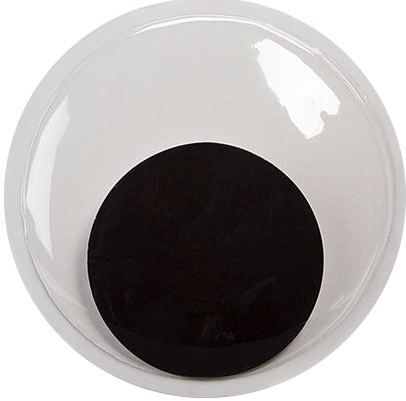- cross-posted to:
- futurology@futurology.today
- cross-posted to:
- futurology@futurology.today
Microplastics Found In Human Hearts For First Time, Showing Impact Of Pollution::A study published in the journal Environmental Science and Technology for found microplastics in the hearts and blood of humans undergoing cardiac surgery.
One of the possible answers astrophysicists give for why we haven’t seen more evidence of intelligent life in the universe, is that there are technological milestones that lead to doomsday scenarios. They’re “great filters” that many advanced civilizations don’t survive. The classic example is nuclear fission and the power it gives to destroy. I’m convinced that plastic is one of these filters.
I’d figure those plastics wreak havoc in the long term in an individual life but won’t prevent people form reproducing and developing. It might be a serious setback but just a hurdle for humanity. Climate change, our nuclear arsenal, … pose more urgent threats.
Yeah lead does all of this stuff too and we made it past the Romans using it as a sweetener…
Did you mean sweetener?
Or did they spin it into threads?
Sweetener… Darn phones lol
deleted by creator
Curious why you’ve got two emojis in your username?
 It’s an ever aging reference to The Good Place
It’s an ever aging reference to The Good Place
DEREK!
I’m enjoying a treat Derrick!
Pretty sure plastics save more.lives than they destroy. Modern medicine isn’t nearly as effective without them.
Not necessarily the creation of plastic–I agree that it’s very beneficial–but the management of plastic. As we’re seeing now, plastic can be very destructive to life when it’s used and disposed of irresponsibly. The filter in this case is being able to use plastic for its good without letting its harmful aspects get out of control.
If they end up destroying the whole species?
I wouldn’t necessarily be convinced of that. I’d put that in a similar category as climate change. It might catastrophically ravage the world, but I think humans would survive. It’s not the same punctuated event as nuclear fission. If a crazy person got control of nukes early in, they could wreak havoc on the world. Initial blasts kill tons of people, radiation would likely not be fully understood and fallout changes the global landscape before humanity can realistically react. Contrast that with global warming and microplastics, we know (we as in humanity in the broader sense) these are issues. It might need to get to the catastrophic ravaging before enough people are convinced, but eventually it will happen. And the intervening time won’t cause humans to go extinct. Sure billions might die, but not all.
This is our lead, isn’t it?
Way worse. Lead was fairly fixable. This is a problem at such a scale it’s hard to understand. And there’s no end in sight to stop mass production of it. Just think of bottles. The number of plastic bottles thrown in the trash from one gas station…then think about all the gas stations. That isn’t even the tip of the iceberg.
I literally avoid plastic as much as reasonably possible, but I still want to bury my head in the sand about the whole thing.
Lead was “fixable” for then-future generations, not for those already affected.
Even when you try to avoid it it piles up. I eat a ton of produce, avoiding frozen food trays and crap like that, but they still package the produce in plastic. Shipping in plastic. Plastic bags at the store even after you ask them not to. Cars and consumer goods half made of plastic. People bitch and moan about bans (probably especially petro industry thinktanks) but that’s probably the best option at this point.
deleted by creator
Plastics have a very real and important role. Things like protecting food from contamination, bacteria and fungi are pretty important and until we find an alternative for roles like that we will still need them. The real issue is our disposable society with one way waste streams and over packaging.
I wish. Plastic pollution will stay around for much longer and we still don’t even know how to fix this mess. Meanwhile it’s getting worse.
Remember this story when the idea of using waste plastic in roads is discussed again. Just last week some company was trying to peddle that awful idea.
We started mass production of plastic 90 years ago, and we’re choking on it. We need to stop all plastic production.
The sheer amount of plastic that goes in the trash any time I take a trip to the grocery story is maddening. And I’m someone who is conscious about it and try to buy products with less plastic waste! Like, what is the point of all this? Is waxed paper not good enough?
I did read some argument that for certain foods, if they removed the plastic wrapping, the expiration would happen so much faster that food waste would increase by a lot. I honestly have no idea if waxed paper would work as well though.
I do agree that hopefully alternative solutions can be found in any case…
I doubt waxed paper would be a blanket solution for everything. Hot dogs come to mind as an example of something that may require plastic (meats in general, but that a whole other issue). But even something like cheese should do fine in sealed waxed paper.
But more obviously, bread and other baked goods, candy, chips, pretty much anything where perishability isn’t a major concern can use waxed paper or cardboard for packaging. Sodas, water, milk, and juice could come in glass, aluminum, or even cardboard cartons instead of plastic bottles. Produce that comes in plastic could use paper, waxed paper, or those little cardboard cartons.
There are plenty of alternatives but our corporate masters would have to sacrifice a small percentage of their quarterly profits so instead we will piss where we sleep until we die.
The sheer amount of plastic that goes in the trash any time I take a trip to the grocery story
Do people not recycle plastics in your country?
If you think ‘recycling’ plastic does a damn thing, you need to do some reading. It’s a sham for corporations to trick you into thinking your plastic waste gets reused. It doesn’t.
These plastics are single-use. The vast majority of plastic I come across in my groceries is destined for the garbage, not the recycle.
Please take a moment to think of everything in your life that is made of plastic, and then think of what could replace it.
Glass and Aluminum are the ultimate recyclables and yet we are still are based around them It’s all about the profits for Corporations and the consumers that buy this trash.
Buy bar soap instead of body wash, etc.
Love my locally made goat milk soap
Need to get me some of that.
I just bought 6 different flowery-scented goat milk soaps and they are heavenly
I’m a guy and I love flowery scented body soap. If you smell good nobody cares what the actual scent is lol
No they aren’t. They typically don’t even get recycled unless they’re both clean and dry which most people don’t do.
Let’s change that then. They are the best reusables we have and we don’t even have a federal system in place for recycling it all. Just trash and consume more cheap plastics.
That’s mostly true in America, where recycling usually is (like everything else) a for profit initiative.
You can replace most anything with wood or sheet metal. Not only that, but without subsidies to the fossil fuel industries, it would actually be cheaper to make many products we make out of plastic of wood or metal instead.
I wouldn’t go so far as to say we need to ban plastics entirely. Expensive, long-lasting items like certain electronics (televisions, game consoles) are probably fine made of sturdy plastics (think the old stuff SNES’s were made out of, not the brittle shit they make Xboxes out of today). And I’d have to guess there are certain electronic components that are best made of plastic and not likely to introduce any microplastics into people’s systems.
What we need to cut down on are disposable plastics and plastics in food service. Styrofoam trays, plastic wrap, tupperware, plastic bottles, plastic grocery bags, plastic packaging, plastic dishes, plastic handles on silverware. All of these could be replaced with glass, metal, wood, or fabric and become more renewable/reusable/recyclable and less dangerous to people’s health.
The problem is that many medical devices for the disabled and chronically ill are made of plastic. It’s why the disability community protested the plastic straw ban, since many of them require to use them to consume anything.
I genuinely emphasize with the people that rely on plastic materials to get through life, it’s tough in that situation. I think the solution for straws (since that’s a more simple solution) would be either something reusable like metal staws or something compostable like agave straws. Medical applications should replace with compostable plastics like hemp. My point is that stopping cold turkey with petroleum based plastics would be better than trying to slowly phase it out. The plastics cartel will do anything to slow down the phase out
Implantable devices can’t be compostable. Catheters and other things that will go inside your body cannot be compostable. That’s not the easy solution you think it is.
I know, and I don’t have any solid solutions. I’m a single person that never studied materials science. I’d love to have all the solutions, but I don’t. The plastic waste that comes to mind for me in a medical setting is the packaging for sterile products, which could definitely be made of industrially compostable materials. Implantable devices is far more complex, but biologically inert metals exist.
The packaging could not be either. Sterility has to be assured for the shelf life of the device. Those are typically years. These materials aren’t just cheap or convenient. They’ve been vetted over decades of research and testing.
Now this isn’t meant to rain on your parade. Just showing how even the best intentions can fall short. Tossing out solutions in areas you aren’t familiar with can just muddy discussions.
Tossing out solutions in areas you aren’t familiar with can just muddy discussions.
That can be a hard lesson to learn, but it’s a great one. If there were awards on here, I’d give you one… In place accept this 🌟
This is such an uninformed take. Plastics are literally everywhere in modern life. Not just the store bags or straws and lids, but objects in the home like appliances, buckles on backpacks, medical devices, items we launch into space. It’s not been shown to meaningfully decrease life expectancy and we may find ways to remove it from our bodies. Cold turkey and you essentially have no infrastructure to replace what is made with plastics.
There are places where it’s absolutely necessary, there are places where it’s inconvenient to get rid of but a good idea, and there are places where it’s absolutely stupid to use plastic.
So it’s an “uninformed take” when I know that 90% of plastics that make it to recycling plants aren’t recycled, and that petroleum plastics are part of the driving factors leading us towards climate chaos?
Climate chaos is not mostly driven by consumer plastics. Burning of fossil fuels to generate power is and has been the largest contributor followed by agriculture. Plastics don’t get recycled because.people don’t even have a fundamental understanding of how recycling works. That’s not the fault of the people, it’s their governments. You and I using a reusable bag and water bottle doesn’t make a dent in climate change. Until our energy shifts to nuclear we aren’t going to be in a better spot. Renewables can supplement but are far away from being a replacement.
Reduction of emissions can’t be the only thing we try. We have to do that and engineer ways to contain and scrub high pollution areas.
Even metals don’t get recycled like they should because they don’t get cleaned and dried.
We have to outengineer the problem at this point because we didn’t engineer a cleaner path fifty years ago when we had the opportunity.
Had we leaned more heavily into nuclear the world would be better off.
Pursuing a useable fusion solution should be the focus of the effort for humanity. That alone can provide us the energy needed to shutdown fossil fuels power plants.
But we decided years ago the nuclear is the boogey man because it is too difficult for the average citizen to comprehend.
You don’t even offer a viable solution. So yea, uninformed take. I’ll stand by it.
Sorry, I didn’t know I was tasked with singlehandedly solving our plastic problem. Either way, I did give a suggestion; replace all plastic with reusable objects made of reusable materials, or make them compostable.
The issue is you made a very extreme statement “We need to stop all plastic production” without actually knowing or understanding A) what plastics make up of the items we use in ALL sectors of our daily lives and B) how catastrophic it would be to stop all plastic production. Just like the knee-jerk reaction that caused plastic straws to be banned and replaced by paper straws in certain areas, and then we find out paper straws actually harm the environment more.
Like, your hot take sounds all good and noble like most virtue signaling statements do, but they also all don’t consider any of the realities or ramifications, just like yours.
Also, your fixable solution isn’t a solution at all. There’s many life-saving plastics that cant be made from reusable or compositabke plastics.
I think plastics are genuinely awesome, but we are over-reliant on them. I’d also rather not drive, but there will always be someone who has a use for cars.
I could remove single-use plastics from my life if my groceries were packaged sustainably. But for example, scientists use single-use plastics and that’s a good thing.
we need to at least make a plastic that is sustainable, biodegradable, and with a shorter lifespan depending on the applications. for example, a water bottle could be made to last 6 months or so depending on the size, while a keyboard could be made to last decades before starting to break down. this would be quite hard to achieve, but if we want to keep all the commodities given to us by plastic, while also keeping our health, we have to invest some money into research.
IIRC They’ve found a microbe recently that will eat plastic within a couple years. Could be wrong though.
Either way I agree. Wish we would just go back to glass.
so can we just drink that?
Isn’t that the lore for the cat adventure game Stray? Some little bug thing was able to eat plastic, they deployed it but it got out of control and mutated to consume all kinds, now chunks of the city are cut off to prevent the spread.
Hope that doesn’t happen smile.
Edit: Afterthought, why does this alleged microbe consume plastic? What nutritional value does oil / hydrocarbons provide?
Not many nutrients, but a lot of energy. Think of the calorie content of cooking oil or butter. That’s why cars can run on cooking oil.
Iirc they bred some worms that are able to, but not prefer to, consume and digest plastics. So the issue is that they essentially had to deprive the worms of other food sources before they chose to eat the available plastic.
There may be some more promising research going into microbes or bacteria that i am not aware of though, so this answer isn’t necessarily comprehensive
Yeah sure why the fuck not. Toss it on the pile of everything thats fucking wrong.
Hey friend, don’t let yourself become doomer. There’s good news out there, too.
So, i was feeling pretty apocalyptic about this too - until it learned that “micro plastics” include any synthetic fibers like polyester. i mean, of course our clothing lint will get everywhere
I don’t know about you, but I don’t feel like clothing lint is supposed to be in our hearts.
Its lint tho… Its like sand of the dryer world
It’s coarse and irritating and it gets everywhere?
Do you think there should be cotton in our hearts too? Just because we wear something doesn’t mean it should be inside our bodies too.
clean your dryer’s lint trap.
I have been trying to replace as many of my synthetic clothes and textiles with cotton (or other natural textiles) as possible…
Yeah, I’m pretty sure there’s microplastics in human everything at this point. How is this a revelation?
Because it was found for the first time. I didn’t even need to read the article to answer your question.
Yep, while you may think that you have a heart of gold or perhaps stone, your heart may actually have microplastics in it. And in this case, life in plastic is not fantastic, regardless of what the Barbie song by Aqua says.
After all, “Please fill my body with pieces of plastic” is probably not what you often say.
Yes, they used freaking laser beams to detect the presence of microplastics
They also found something bloody awful: nine types of microplastics in patients’ blood samples
Even things that may not obviously seem to have plastic, like various types of clothes, can have lots o’ plastic in them
But all of this may just be the tip of the plasticberg.
In fact, you may be like a walking credit card with the amount of plastic that you already have in you.
The issue is important and the data is scary, but this article reads like the work of a ten-year-old class clown giving an oral report during a sugar high.
deleted by creator
I’ll decompose into a pile of bones and a little mound of plastic dust.
Materialism in the hearts of men
Link to the paper: https://pubs.acs.org/doi/10.1021/acs.est.2c07179
The paper mentions controlling for accidental exposure during surgery, although it is also behind a paywall, so it’s not possible to tell whether they might have been more exposed to plastic because of whatever heart issues required surgery in the first place, or whether it is something that might also be in healthy humans.
On a side note, why is this in !technology, anyhow? It doesn’t seem all that tech-related, except maybe in terms of the plastic discussion.















